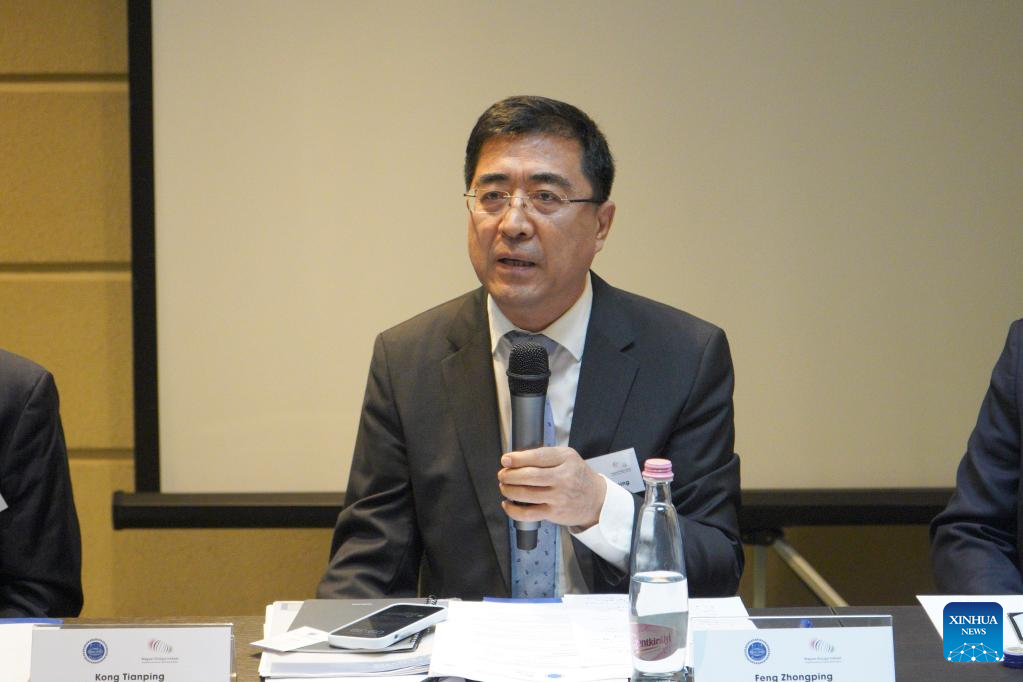China, CEECs should expand practical cooperation in current environment, say experts

Feng Zhongping, president of the China-CEE Institute, speaks at an academic seminar co-organized by the China-CEE Institute and the Hungarian Institute of International Affairs (HIIA) in Budapest, Hungary on June 28, 2023. China and Central and Eastern European Countries (CEECs) should continue promoting practical cooperation given the drastic changes in the current international geopolitical environment, said experts at an academic seminar here on Wednesday. The seminar aimed to shed light on the evolving dynamics globally and their impact on the region, and examine the challenges and opportunities for cooperation. (Xinhua/Chen Hao)
BUDAPEST, June 29 (Xinhua) -- China and Central and Eastern European Countries (CEECs) should continue promoting practical cooperation given the drastic changes in the current international geopolitical environment, said experts at an academic seminar here on Wednesday.
The seminar, co-organized by the China-CEE Institute and the Hungarian Institute of International Affairs (HIIA), aimed to shed light on the evolving dynamics globally and their impact on the region, and examine the challenges and opportunities for cooperation.
In his opening remarks, Feng Zhongping, president of the China-CEE Institute, emphasized that China-European Union (EU) relations have become more prominent in today's international environment.
Speaking of the frequent high-level exchange of visits between China and the EU recently, Feng said that China attaches great importance to the sound development of China-EU relations.
The two sides should strengthen communication at all levels to enhance mutual understanding and deepen mutually beneficial cooperation, he added.
Gladden John Pappin, president of HIIA, stressed that the open market policy of Hungary is the key to attracting overseas investment and improving its core competitiveness, which also serves as a favorable condition for Chinese investment in Hungary.
Hungary and China should continue to promote practical cooperation in various fields such as economy, trade, investment, and people-to-people and cultural exchanges, he added.
The seminar featured presentations of experts from over 10 countries, including China, Hungary, Germany, Poland, Serbia and the Czech Republic.
The China-CEE Institute was established in Budapest in April 2017. It is the first Chinese think tank independently registered in Europe.

Gladden John Pappin (C), president of the Hungarian Institute of International Affairs (HIIA), speaks at an academic seminar co-organized by the China-CEE Institute and the HIIA in Budapest, Hungary on June 28, 2023. China and Central and Eastern European Countries (CEECs) should continue promoting practical cooperation given the drastic changes in the current international geopolitical environment, said experts at an academic seminar here on Wednesday. The seminar aimed to shed light on the evolving dynamics globally and their impact on the region, and examine the challenges and opportunities for cooperation. (Xinhua/Chen Hao)


